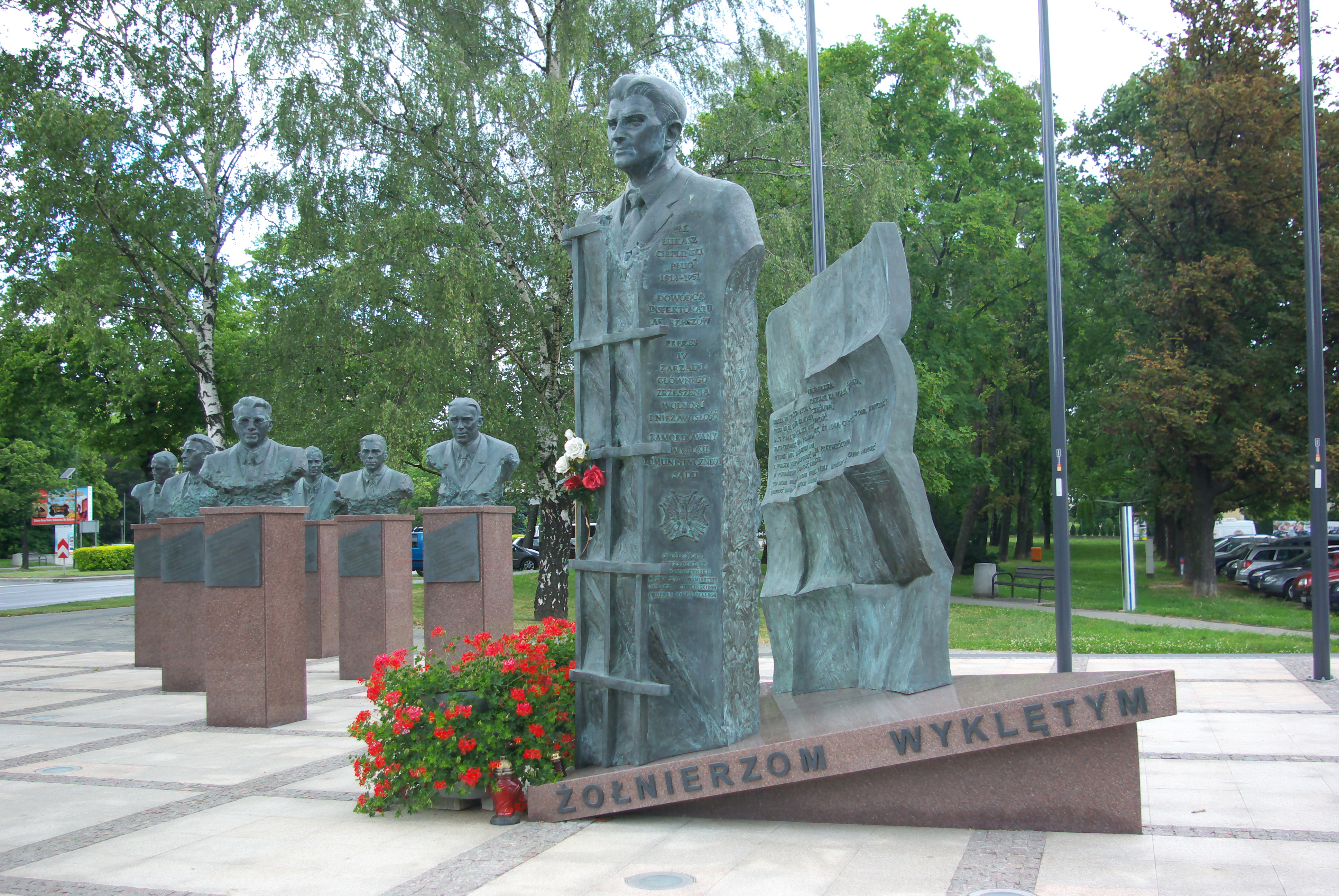OPINIONS
Date: 17 October 2022 Author: Adrian Kolano
The Indomitable: Colonel Łukasz Ciepliński’s Fight for Poland’s Freedom pt. 2
In September 1945, Łukasz Ciepliński became chairman of the Cracow District of Freedom and Independence Association (Polish: Zrzeszenie Wolność i Niezawisłość, or WiN), where he continued to make use of his excellent organizational skills. The activities of the Polish underground after May 8, 1945, resembled those of earlier years only to some extent.

It still was a resistance movement, but with no major strictly military and diversionary activities, as suggested by its full name, the Resistance Movement without War and Diversion Freedom and Independence. From December 1945 until the end of 1946, Ciepliński was president of the Southern District of this organization. By mid-1946, Freedom and Independence had managed to establish an extensive network of contacts opposing the government in Poland created by Stalin. Among them were the Primate of Poland, August Hlond, and Cardinal Adam Sapieha. The underground press was also active, and attempts were made to establish the Foreign Delegation of the association. The year 1946 was a time of actions related to the forced ‘sanctioning’ of the authority of agents sent from Moscow, which happened, among other things, through referendums and elections. Unsurprisingly, the votes were rigged by the communists, so the main task of the still-operating underground was to determine the actual results and inform the world about the situation in the country. Communists and Soviets in Poland were constantly cracking down on the underground, persecuting and murdering its members. After the communist secret police (Urząd Bezpieczeństwa) broke up the Third General Management of Freedom and Independence, Ciepliński assumed the presidency of the Fourth General Management in January 1947. He also moved the headquarters of the Association from Cracow to Zabrze and profoundly modernized the association. His primary focus was communication with the West, he launched new traffic routes and expanded intelligence. According to many historians, it was Ciepliński who brought Freedom and Independence to the highest organizational and ideological level. It was another tremendously heroic period in the joint history of Ciepliński and the Polish resistance, which, however, was coming to an end.
The Will of Łukasz Ciepliński
Between November and December 1947, most members of the Freedom and Independence and district presidents were detained. On November 28, 1947, Ciepliński was also arrested in Zabrze. He trusted the promises of the Security Office officers regarding a so-called silent amnesty (the promise of no oppression) for his subordinates and revealed his organizational structures and contacts. Initially, he also agreed to take part in the Ministry of Public Security’s intelligence game with the West. When Ciepliński realized what were their true intentions, he withdrew the cooperation, which was tantamount to a death sentence against him.
The Warsaw-Mokotów Detention Center was a communist hell on earth, and the treatment of prisoners there went beyond human endurance and possible contemporary imagination. For the ‘investigators,’ heirs to the Chekists and imitators of the NKVD, nothing mattered except the outcome of the investigation. Prisoners were brutally tortured and destroyed mentally and physically. Extremely cruel treatment was also meted out to Ciepliński, who spent almost three years in prison on Rakowiecka street in Warsaw. His secret messages addressed to his family in the last months of his life have survived this period. In one of them he wrote to his wife:
Dear Wisia! I am still alive, although these are probably my last days. I am sitting here with a Gestapo officer. They receive letters, but I do not. And I would so much like to read at least a few words written by your hand (…). I lay this pain at the feet of God and Poland (…). I thank God that I can die for His Holy Faith, for my Homeland, and for giving me such a wife and great family happiness.
The secret messages left by Łukasz Ciepliński can be considered his ideological will promoting the ideas of a free Poland, love for God, Homeland, and loved ones. It was in the secret messages that he included the greatest values that guided him throughout his life. Reading them, however, one has a sense of disappointment, of defeat. Nevertheless, aware of his fate, Ciepliński turns to his son to keep in his heart the values to which he was faithful to the end and asks his wife to raise him to continue his work.
On October 14, 1950, Łukasz Ciepliński was sentenced to five consecutive death sentences. Probably on March 1, 1951, he and six of his fellows were murdered with a shot to the back of the head at Mokotów Prison in Warsaw. The burial place of this great Polish patriot and officer remains unknown. Promoted posthumously to the rank of colonel, Łukasz Ciepliński was symbolically buried in the Na Łączce site in Powązki Military Cemetery in Warsaw. In May 2007, he was posthumously awarded the Order of the White Eagle by Polish President Lech Kaczyński.
Support Us
If content prepared by Warsaw Institute team is useful for you, please support our actions. Donations from private persons are necessary for the continuation of our mission.
All texts published by the Warsaw Institute Foundation may be disseminated on the condition that their origin is credited. Images may not be used without permission.















